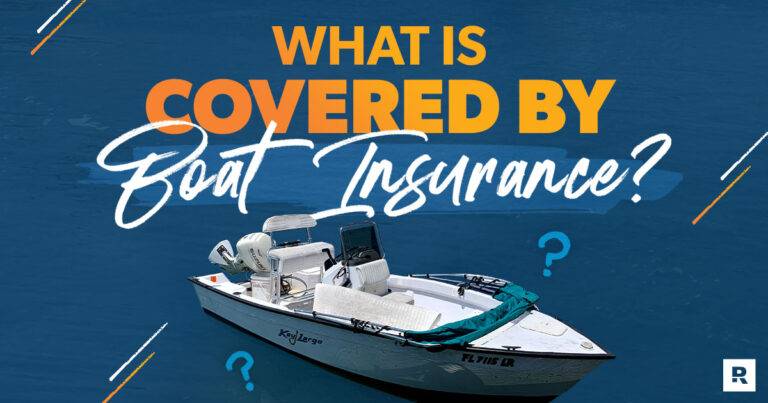Table of Contents
Boat ownership offers incredible freedom and a wonderful way to enjoy the water. But it also comes with responsibilities, like boat insurance. Is it possible to get the coverage you need at a price that keeps boating an enjoyable pastime? Absolutely! Here are 5 proven ways to lower your boat insurance premiums.

Boat Insurance Premium: Take Boating Safety Courses to Lower Premiums and Boost Your Skills
Insurance companies favor responsible boaters, and completing accredited boating safety courses is one of the best ways to demonstrate that responsibility. These courses not only unlock potential premium discounts but also equip you with invaluable knowledge that enhances your overall boating experience.
Types of Boating Courses: Your Gateway to Safer Waters
Enhancing your knowledge and skills on the water is not just a smart move, it’s often a legal requirement. Fortunately, there’s a wide range of boating courses available to suit your needs and interests:
Nationally Recognized Programs:
- U.S. Coast Guard Auxiliary (USCGA): The USCGA offers a comprehensive array of courses, both online and in-person. Their options cater to beginners seeking basic boating safety knowledge, as well as experienced boaters looking to refine their seamanship and navigation skills.
- U.S. Power Squadrons (USPS): Another excellent resource, USPS provides educational programs with a strong emphasis on navigation. They often offer hands-on training and certification courses for various boating disciplines, including sailing and powerboating.
State-Specific Programs:
Many states mandate boating safety education, and they often have approved courses tailored to their specific waterways and regulations. Check with your state’s boating agency or department of natural resources to find local courses that meet your state’s requirements.
Online vs. In-Person Courses:
Both online and in-person courses have their merits. Online courses offer flexibility and convenience, while in-person courses provide hands-on experience and direct interaction with instructors. Consider your learning style and preferences when choosing a format.
Additional Course Options:
Beyond the major organizations mentioned above, numerous other providers offer specialized boating courses. Some examples include:
- BoatUS Foundation: Provides online and on-water training courses.
- American Sailing Association (ASA): Offers sailing certifications at various skill levels.
- Boat Ed: Offers state-approved online boating safety courses.
No matter your skill level or experience, there’s a boating course out there that can help you become a safer and more confident boater. By investing in education, you’re not only protecting yourself and your passengers but also contributing to a more enjoyable and responsible boating community.
How to Find Recognized Courses:
The best way to ensure your safety course qualifies for an insurance discount is to contact your insurance provider directly. They’ll provide a list of recognized courses and any specific requirements.
Benefits Beyond Insurance Savings:
While the potential insurance savings are a major draw, the real value of boating safety courses lies in the knowledge and skills you gain:
- Navigation and Seamanship: Learn essential navigation rules, right-of-way procedures, and how to interpret nautical charts.
- Emergency Preparedness: Gain the skills to handle onboard fires, man-overboard situations, and other potential emergencies.
- Weather Awareness: Learn to read weather patterns and make informed decisions about when it’s safe to be on the water
- Overall Confidence: A comprehensive course builds the confidence and knowledge to make your boating adventures safer and more enjoyable.
2. Install Safety Equipment: Protect Your Boat and Your Premiums
Outfitting your boat with the right safety equipment isn’t just a smart move, it can also directly impact your insurance costs. Insurance companies appreciate proactive measures that minimize the risk of accidents and damage.

Key Safety Equipment:
- Fire Extinguishers: Choose extinguishers rated for marine use and strategically place them in easily accessible locations throughout your boat.
- Automatic Bilge Pumps: These pumps activate automatically when water levels rise, helping prevent your boat from sinking due to leaks or flooding.
- Depth Finders: These devices help you navigate safely, especially in shallow waters, reducing the risk of grounding and damage to your vessel.
- Additional Considerations: Other safety features that may qualify for discounts include:
- Throwable Flotation Devices: Life rings and cushions provide vital support in case someone goes overboard.
- Visual Distress Signals (Flares): Alert other boaters and rescuers in the event of an emergency.
- Navigation Lights: Ensure your boat is visible at night and in poor weather conditions.
- GPS Tracking/Anti-Theft Devices: Help deter theft and may aid in recovery if your boat is stolen.
Talk to Your Insurer:
Contact your insurance provider to learn which specific safety features may qualify for discounts on your premiums. Some companies offer even deeper discounts if you install multiple safety devices.
3. Bundle Your Policies: The Power of Consolidation
If you already have other insurance policies, such as auto or homeowners, bundling them with your boat insurance can be a savvy way to unlock significant savings. Insurance companies often reward loyalty and streamlined administration with multi-policy discounts.
Why Bundling Works:
- Customer Loyalty: By bundling your policies, you show your insurance provider that you value their services and are likely to be a long-term customer.
- Reduced Administrative Costs: Managing multiple policies for a single customer is more efficient for insurance companies, and they often pass these savings on to you.
- Convenience: Having all your policies in one place can simplify payments, renewals, and claims processes.
How to Maximize Your Savings:
- Start with Your Current Insurer: Contact the company that provides one or more of your existing policies (auto, homeowners, life, etc.) and inquire about bundling your boat insurance.
- Compare Quotes: While bundling often leads to savings, it’s still wise to compare quotes from other reputable insurers to ensure you’re getting the best value.
- Look for Additional Discounts: Some companies offer further discounts for things like being a safe driver, having a monitored home security system, or being claims-free for a certain period.
Remember: Bundling isn’t always the cheapest option, so it’s important to compare the bundled price to individual policies. But in many cases, the convenience and savings potential of bundling make it a smart strategy for boat owners.
4. Maintain a Clean Boating Record: Your Responsibility Pays Off
Just like your driving history affects your car insurance rates, your boating record plays a crucial role in determining your boat insurance premiums. Insurance companies view a clean record as a sign of a responsible and cautious boater, which translates to lower risk and potential savings.
What Constitutes a “Clean” Record:
- Accident-Free: A history free from boating accidents demonstrates careful operation and reduces the likelihood of future incidents.
- Claim-Free: The absence of past insurance claims indicates a well-maintained boat and minimizes the risk of costly repairs or replacements.
- Violation-Free: Adhering to boating regulations, speed limits, and right-of-way rules shows respect for the law and minimizes the possibility of citations.
How to Protect Your Record:
- Practice Defensive Boating: Always be aware of your surroundings, other boats, and potential hazards. Anticipate and avoid risky situations.
- Prioritize Maintenance: Regular maintenance keeps your vessel in good working order, preventing breakdowns and accidents.
- Brush Up on Regulations: Stay updated on boating laws and navigation rules in your area. Consider taking refresher courses as needed.
- Choose Your Waters Wisely: Avoid boating in crowded areas or hazardous conditions whenever possible to minimize the risk of collisions.
The Rewards of a Clean Record:
By maintaining a spotless boating record, you not only protect yourself and others on the water, but you also enjoy:
- Lower Premiums: Insurance companies offer competitive rates to those who demonstrate a commitment to safety.
- Peace of Mind: Knowing you’re a responsible boater allows you to relax and enjoy your time on the water.
Remember, your boating record is an asset. Safeguard it for smoother sailing and lower insurance costs.
5. Consider a Higher Deductible: Balancing Costs and Coverage
Your deductible plays a significant role in your boat insurance premiums. Choosing a higher deductible is a strategic way to potentially lower your monthly or annual payments, but it’s important to weigh the trade-offs carefully.
How It Works:
- Lower Premiums, Higher Out-of-Pocket Costs: By increasing your deductible, you agree to shoulder more of the financial burden in the event of a claim. In exchange, your insurance company will reduce your premiums.
- Finding the Right Balance: The key is to choose a deductible that you can comfortably afford if an accident or incident occurs, while still maximizing premium savings.
Is a Higher Deductible Right for You?
Consider these factors:
- Your Savings: How much would you save on premiums by raising your deductible? Is the difference significant enough to justify the increased out-of-pocket risk?
- Your Financial Comfort: If a covered loss occurred, could you readily pay your higher deductible?
- Your Boating Habits: Are you an experienced boater with a history of safe operation? If so, the chances of needing to file a claim may be lower.
A Note on Savings: While choosing a higher deductible can reduce your premiums, it’s important to calculate the potential long-term costs. If you have to file a claim, be sure the premium savings over time outweigh the one-time expense of your higher deductible.
Additional Tips
- Review Your Coverage Annually: Needs change, and what was perfect a few years ago might not be right now. Review your policy with your insurer to identify potential areas to save.
- Shop Around: Boat insurance rates vary by company. Get quotes from multiple reputable insurers to compare rates and coverage options.




